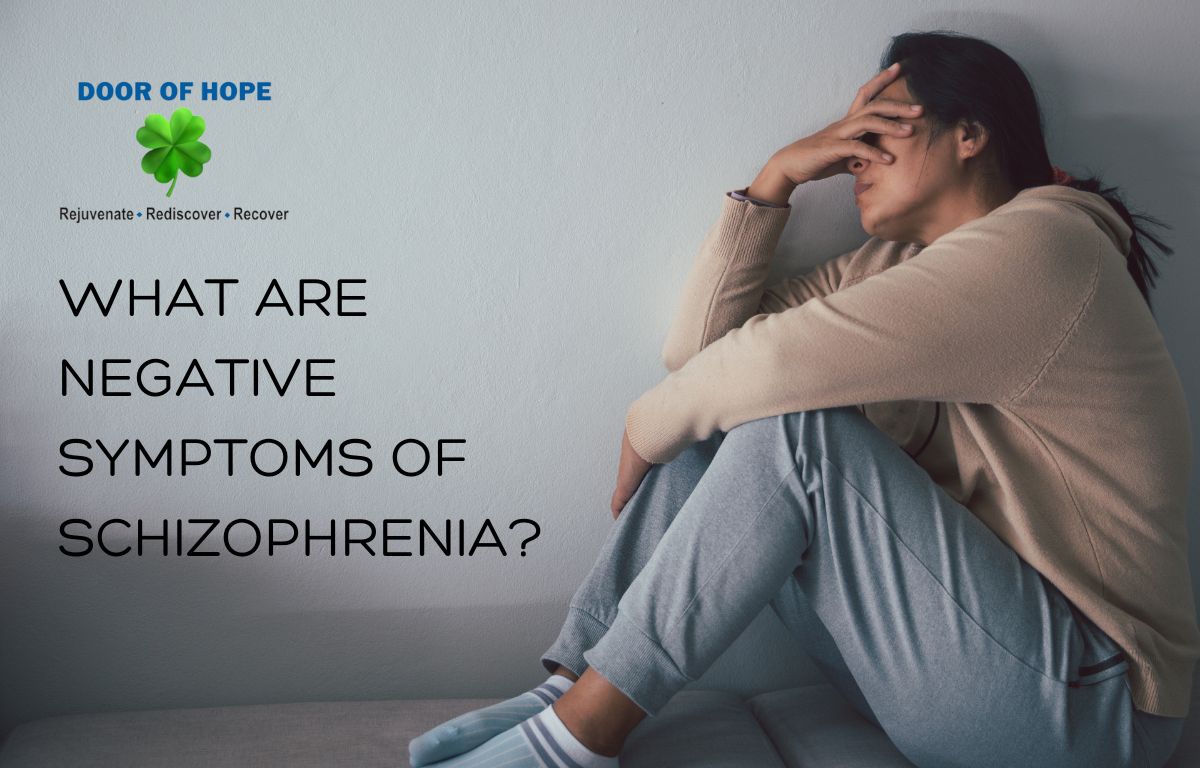Schizophrenia, a complex and severe mental illness, profoundly affects cognition, emotions, and behaviour. While it's commonly associated with positive symptoms like hallucinations and delusions, negative symptoms are equally impactful yet often overlooked. This article aims to provide an in-depth understanding of the negative symptoms of schizophrenia and their implications for individuals' daily lives.
Understanding Negative Symptoms
Negative symptoms in schizophrenia refer to the absence of behaviours, abilities, or characteristics commonly observed in individuals. These symptoms significantly impair daily functioning and diminish the quality of life for affected individuals.Types of Negative Symptoms
Negative symptoms can be categorized into primary and secondary forms. Primary negative symptoms are inherent to the disorder itself, while secondary negative symptoms may arise due to external factors such as medication or substance use.Common Mental & Physical Negative Symptoms of Schizophrenia
A. Negative Mental Symptoms
- Lack of Interest in the World
- Social Withdrawal and Isolation
- Inability to Experience Pleasure (Anhedonia)
- Decreased Sense of Purpose and Spontaneity
- Lack of Motivation (Avolition)
- Difficulty in Verbal Communication (Alogia)
B. Negative Physical Symptoms
- Inexpressive Facial Expressions (Flat Affect)
- Monotone or Limited Speech
- Decreased Gesturing and Eye Contact
- Physical Inactivity and Lethargy
Recognizing Negative Symptoms
Identifying negative symptoms is a nuanced process that requires careful observation and understanding of behavioural patterns. While positive symptoms like hallucinations may be more overt, negative symptoms often manifest subtly, making them challenging to recognize. Here's a deeper exploration of strategies for recognizing negative symptoms:A. Subtle Behavioral Cues:
- Pay attention to subtle behavioural cues such as reduced eye contact, minimal facial expressions, and limited verbal communication. These cues may indicate underlying negative symptoms, particularly in social situations.
- Notice patterns of withdrawal or disengagement from activities that were previously enjoyable or meaningful. Individuals experiencing negative symptoms may exhibit a pervasive lack of interest or motivation, which can manifest as a decline in participation in social, occupational, or recreational activities.
B. Emotional Expression:
- Negative symptoms often manifest as a blunted affect or a reduction in the range and intensity of emotions expressed by an individual. Observing how someone responds to emotional stimuli or engages in conversations can provide insights into their emotional experience.
- Look for signs of anhedonia, characterized by an inability to experience pleasure from once enjoyable activities. Individuals with schizophrenia may lose interest in hobbies, social gatherings, or other activities they previously found fulfilling.
Impact of Negative Symptoms on Daily Life
Negative symptoms exert a profound impact on various aspects of an individual's daily life, significantly impairing their ability to function autonomously and engage meaningfully with the world around them. Understanding the far-reaching consequences of negative symptoms is crucial for providing comprehensive support and intervention:A. Occupational Functioning:
- Negative symptoms can hinder an individual's ability to maintain employment or pursue educational opportunities. Reduced motivation, lack of initiative, and difficulties with communication may impede job performance and limit career advancement opportunities.
- Individuals experiencing negative symptoms may struggle to meet the demands of academic settings, leading to academic underachievement or dropout.
B. Social Relationships:
- Negative symptoms contribute to social withdrawal and isolation, resulting in strained interpersonal relationships and diminished social support networks. The lack of emotional expression and engagement may make it challenging for individuals to establish and maintain meaningful connections with others.
- Family members and friends may experience frustration or distress when attempting to communicate with someone exhibiting negative symptoms, further exacerbating feelings of isolation and alienation.
C. Self-Care and Daily Functioning:
- Negative symptoms can disrupt essential self-care activities such as grooming, hygiene, and meal preparation. Individuals may neglect their physical health and hygiene due to a lack of motivation or interest.
- Daily tasks and responsibilities may become overwhelming for individuals experiencing negative symptoms, leading to difficulties in managing household chores, financial responsibilities, and personal affairs.
D. Emotional Well-Being:
- The pervasive nature of negative symptoms can take a toll on an individual's emotional well-being, contributing to feelings of hopelessness, frustration, and low self-esteem. The inability to experience pleasure or derive satisfaction from life's activities may contribute to a sense of existential emptiness and despair.
E. Quality of Life:
- Collectively, the cumulative impact of negative symptoms on occupational functioning, social relationships, self-care, and emotional well-being significantly diminishes an individual's overall quality of life. Without adequate support and intervention, individuals with schizophrenia may struggle to lead fulfilling and meaningful lives.
Coping with Negative Symptoms
A. Treatment Approaches
- Drug Therapy: Overview of medications used to manage negative symptoms, along with challenges in treatment.
- Psychotherapy: Role of cognitive-behavioral therapy (CBT) and other psychotherapeutic interventions in addressing negative symptoms.
B. Strategies for Management
- Importance of ongoing communication with healthcare providers to monitor symptom progression and adjust treatment accordingly.
- Incorporation of lifestyle modifications and supportive interventions to enhance coping strategies.


